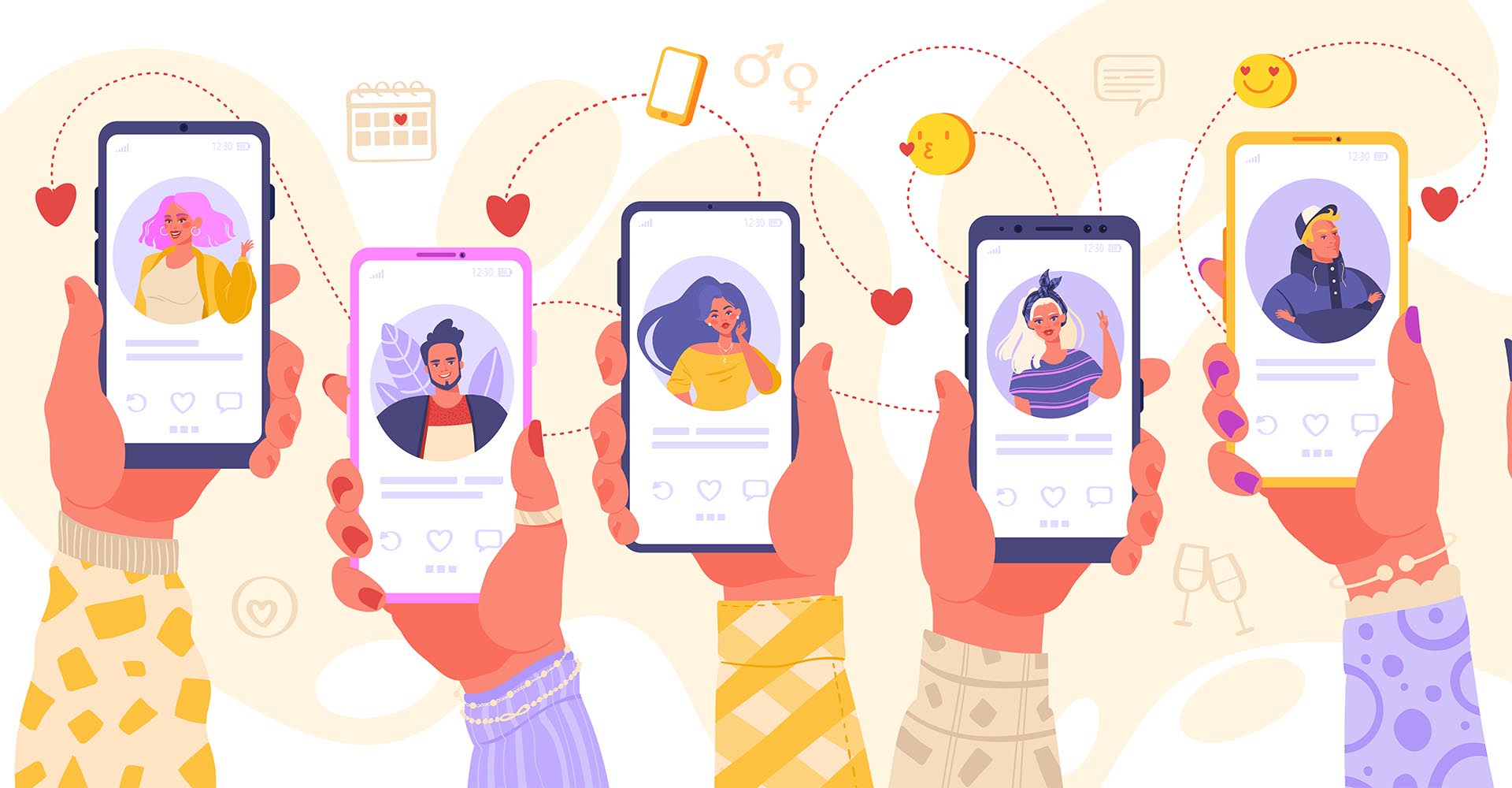Love in the time of COVID-19
The rules of dating have been turned upside down by the pandemic. But where there’s a will …

“Global pandemic” and “dating boom” are not words you’d typically expect to find in the same sentence.
And certainly, when the COVID-19 outbreak first hit – prompting around 2.6 billion people to hunker down in isolation – many doubted that dating apps would even survive. But love, as they say, finds a way.
Four months on, the dating business is booming. Hinge and Bumble now boast successful virtual dating features. And Tinder recently clocked up more than 3 billion swipes in 24 hours – its busiest day ever.
But still, pandemic dating is a different proposition from your typical summer fling. Randi Smith, Ph.D., psychology professor at Metropolitan State University of Denver, offers some smart tips and unpacks a few potential pitfalls.
Digital dating is thriving
Randi Smith: The COVID-19 outbreak has been particularly tough on our single population. Those who are single and living alone will understandably be feeling especially isolated and lonely, and so are wanting to reach out. And single people who are stuck at home with family members or housemates, and maybe growing irritated with them, are desperate to see a new face and find a romantic spark.
Real connections can be made via video …
RS: Following the lockdown, the number of video dates on dating apps quickly shot up from 6% to 69%. And once the initial awkwardness is over, people are finding this format can be surprisingly intimate – having no distractions encourages more openness and honesty. Previously, many users were prone to long text flirtations prior to meeting, which research shows is often unproductive. But with a video date, while it’s still not possible to tell if there’s genuine chemistry, you can get at least get a much better idea of the person.
… But physical chemistry still matters
RS: Sadly, there is always a danger that the great rapport established during video dates will curdle to awkwardness in an eventual face-to-face meeting. While I don’t think humans are extraordinarily influenced by pheromones, the idea of physical chemistry is a real factor. And there are certain physical attributes about a person – like someone’s height, walking style, even breath – that you simply can’t get a sense of on video. I’m sure many video dates ultimately do result in very successful relationships, but the point is you’ll never really know until you meet someone in person.
Dating is slowing down and speeding up simultaneously
RS: I don’t have hard data, but my anecdotal evidence as a clinician suggests the slower pace of COVID-era dating has often led to frustration and concern. People in their 30s who are looking for a serious partner feel that time is a-wasting here, and the endless video dates and shared remote drinks can feel like a long road to travel. That means when couples do finally meet, sometimes after investing weeks to reach that point, it can feel like all the chips are on the table – and they’re maybe more likely to spend the night together. So ironically, the coronavirus may be slowing the dating process initially but then rapidly accelerating it once people connect.
Digital dating is no cure for loneliness
RS: Research shows that single people have been the loneliest during the COVID-19 pandemic, and I don’t think online dating in itself mitigates that sense of loneliness. We all know that Zoom calls with family and friends are a poor substitute for actually seeing them in real life, and it’s the same with virtual dating – flirting on a screen will only get you so far. Especially during these socially distanced times, single people are craving real human contact – a hug, a massage, a sense of intimacy. That’s why I think many of them might be more willing to take health risks when they actually do meet someone because they are so hungry for that sense of physical connection.
Exclusivity is evolving
RS: In my narrow experience with psychotherapy clients over the past few weeks, I’d say the official advice to avoid multiple dating partners isn’t really holding up. When people are desperate for some alleviation of their loneliness – as Springsteen says, “a little of that human touch” – they won’t always be super-safe. For example, I don’t think many people are necessarily observing a two-week incubation period between dates; if an opportunity arises, they will likely expose themselves to that risk. Humans are notorious for indulging in unsafe sex in all kinds of ways, and this is merely the latest example of that. People won’t suspend their human needs indefinitely – and the longer this pandemic goes on, the harder that will become.
Video dating could be here to stay
RS: Once we come out of the pandemic, it wouldn’t make sense to virtually date someone over a prolonged period – because as we all know, the rubber only really hits the road when you finally meet in person. But video chats could still prove useful as a helpful intermediary step when assessing potential partners (and deciding whether to eliminate them). To be frank, while video dates can’t tell you if you will be attracted to someone, they can probably reliably indicate when you’re not.



